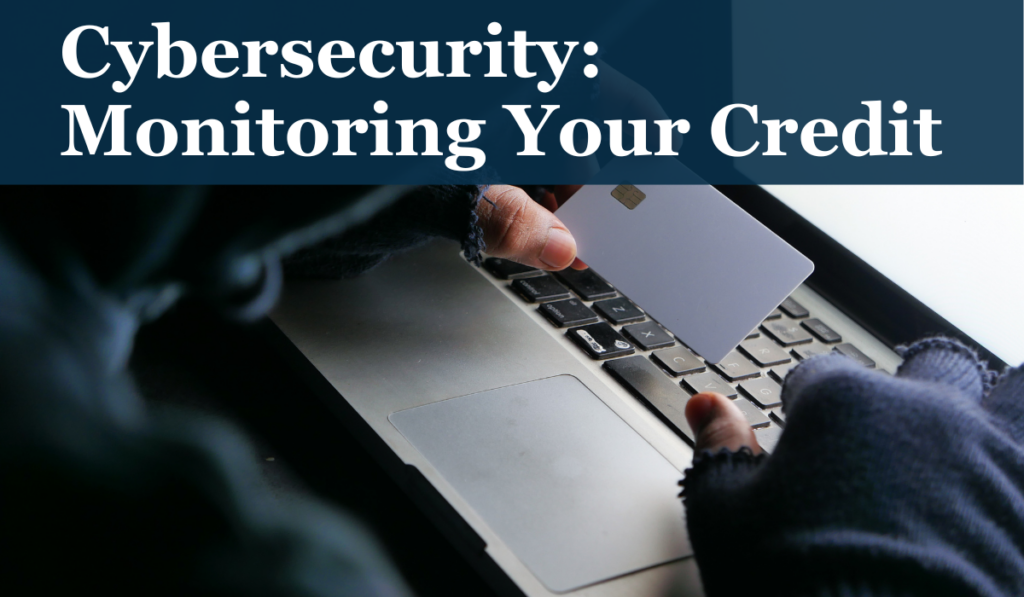Your credit plays a pivotal role in your financial and cyber well-being. A strong credit history can unlock opportunities for better interest rates, favorable loan terms, and greater financial security. But it can also alert you to fraudulent activity against your identity. If a breach goes on unnoticed for some time, as it often can, one of the first ways you may uncover it is by staying diligent when it comes to monitoring activity against your name. It is essential to regularly monitor your credit and keep a close eye on your credit report.
Why Monitor Your Credit?
Credit monitoring involves keeping a watchful eye on your credit activities and reports – and can indicate if there has been fraudulent activity against your identity.
- Detecting Errors: Credit report errors are not uncommon. Regular monitoring allows you to identify and rectify any inaccuracies promptly, preventing potential damage to your credit score.
- Preventing Fraud: Monitoring your credit can help you spot signs of identity theft or unauthorized activity early, reducing the risk of financial loss and damage to your credit reputation.
- Improving Financial Awareness: Keeping track of your credit behavior gives you insights into your financial habits. This awareness can motivate better financial choices and help you plan for the future.
Ways to Monitor Your Credit
- Annual Credit Reports: Request a free credit report from each of the three major credit bureaus (Equifax, Experian, and TransUnion) once a year. Visit AnnualCreditReport.com to access your reports. Review for accuracy and consistency.
- Credit Monitoring Services: Enroll in credit monitoring services offered by various companies. These services track changes to your credit report, alert you to any suspicious activity, and provide regular updates on your credit score.
- Free Resources: Websites like Credit Karma offer free access to your credit scores and reports. They also provide tools to simulate the impact of various financial decisions on your credit.
- Credit Card Issuers: Many credit card companies offer free credit score tracking to their customers. Log in to your credit card account to view your score, credit utilization, and other relevant information.
- Banks and Financial Apps: Some banks and financial apps provide credit monitoring as part of their services. Check if your financial institution offers this feature and be sure to enroll.
- Fraud Alerts and Security Freezes: Place fraud alerts on your credit reports to notify you if someone tries to open an account in your name. Consider freezing your credit if you suspect fraud or want to limit access to your credit information.
Accessing Your Credit Report
- Online: Visit the official website AnnualCreditReport.com to request your free annual credit reports from Equifax, Experian, and TransUnion.
- By Phone: Call 1-877-322-8228 to request your free credit reports through an automated process.
- By Mail: Complete the Annual Credit Report Request Form available on the website and mail it to the Annual Credit Report Request Service, P.O. Box 105281, Atlanta, GA 30348-5281.
Monitoring your credit is an integral part of maintaining your financial health, your cyber footprint, and your cybersecurity. Regularly checking your credit report helps you to spot errors, guard against fraud, and stay informed about your credit status. With a plethora of tools and resources available, doing this has never been easier. By incorporating credit monitoring into your financial routine, you’re taking proactive steps toward staying secure. Breach Secure Now helps businesses and their employees stay cyber-safe, contact us today for more information!
The post Cybersecurity: Monitoring Your Credit appeared first on Breach Secure Now!.





